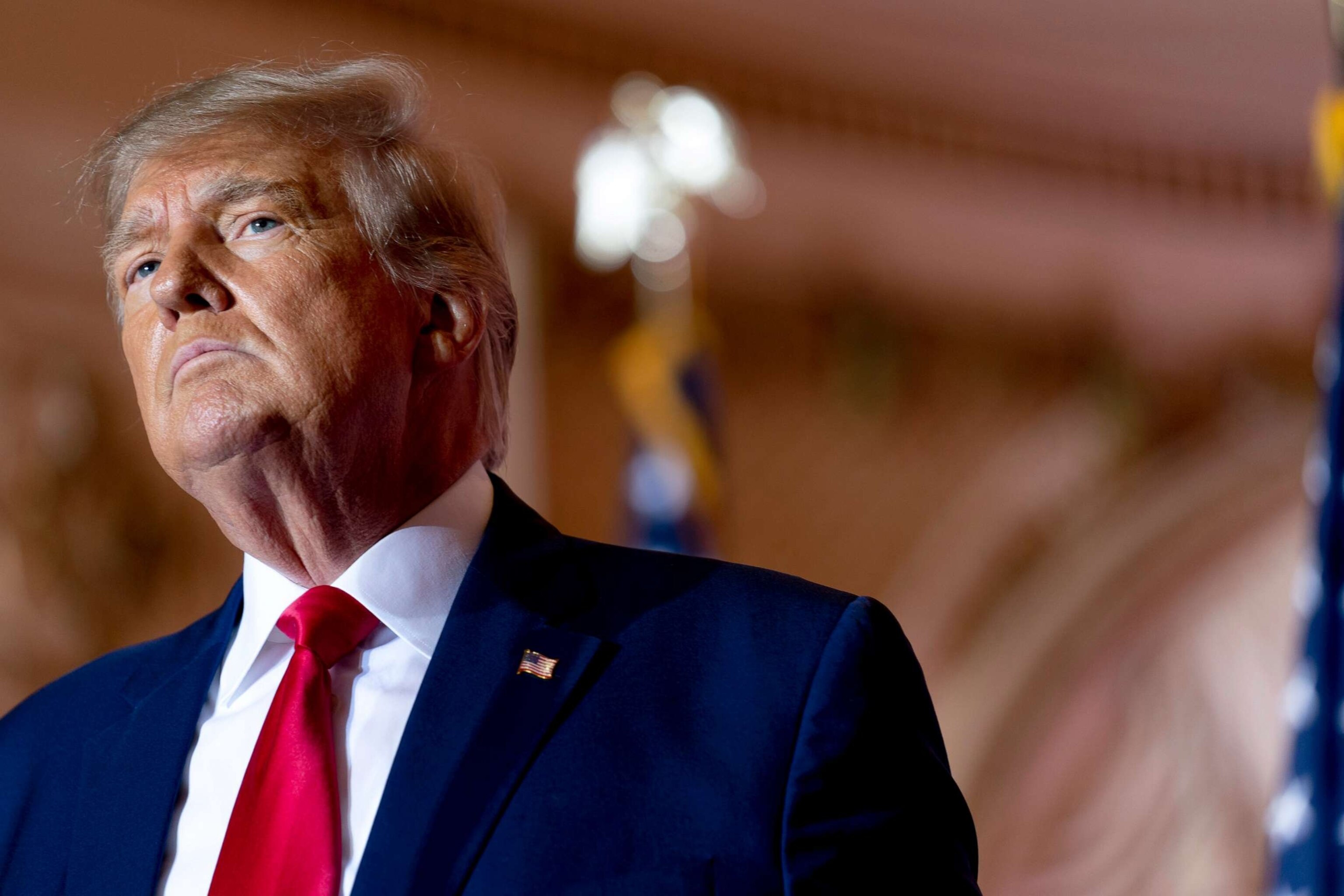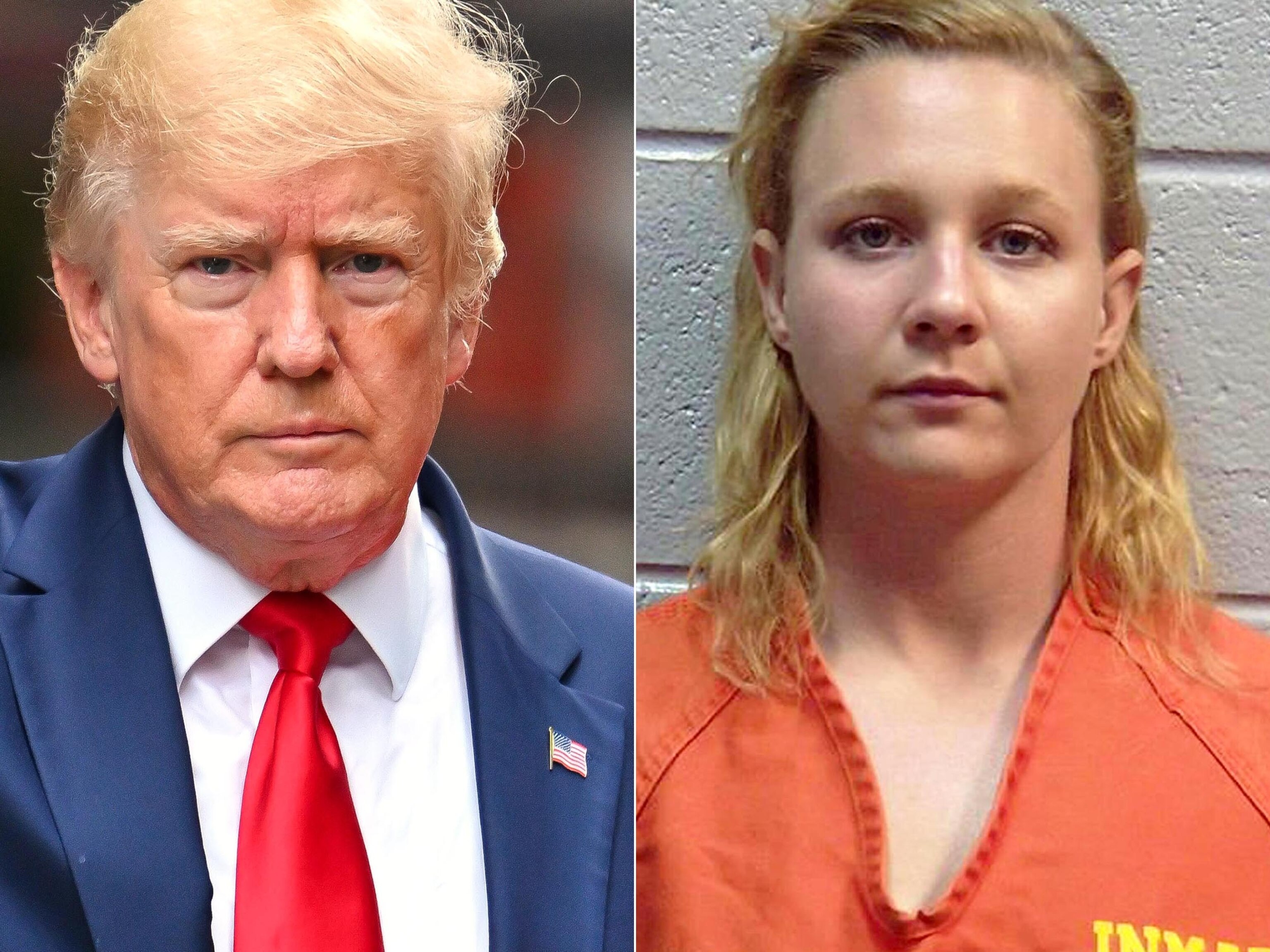Trump compares his Espionage Act case to Clinton, Biden. Winner's may be more apt: ANALYSIS
Reality Winner's case may be more instructive on the stakes Trump faces.
When former President Donald Trump appeared in court Tuesday in Miami, where his attorney pleaded not guilty on his behalf to historic federal charges, the Espionage Act came into new focus as a key law implicated in his handling of government secrets while out of office.
The vast majority of the charges -- 31 of the 37 counts in the indictment against him -- were brought under Section 793(e) of the Espionage Act for his alleged "willful retention of national defense information." The century-old law outlines the type of information that is so sensitive that, if it falls into the wrong hands, could be used to harm the United States.
Prosecutors alleged in Trump's indictment that he took approximately 300 documents with classified markings with him when he left the White House and then repeatedly sought to avoid giving them back, despite requests, a subpoena and, eventually, an FBI search.
Trump and his lawyers have denied any wrongdoing. They claim that, as president, he had every "every right" to keep the documents under the Presidential Records Act so the Espionage Act doesn't apply, an argument legal experts disputed in interviews with ABC News.
The former president and his supporters have been claiming he's the victim of a legal double standard, pointing to classified documents found to be improperly held by his own vice president and current Republican political rival, Mike Pence, and his past and present Democratic foes Hillary Clinton and President Joe Biden.
While those comparisons may serve a useful political purpose, details in each of those cases show they don't come close to what Trump has been charged with.
In Pence's case, approximately a dozen documents with classified markings are thought to have been found in his personal possession after he left office and then turned over to the Department of Justice. The DOJ investigated and declined to prosecute him.

Prosecutors also declined to pursue charges against Clinton for classified information that passed through a private email server she had controversially set up to conduct government business while she was serving as secretary of state. About 193 emails containing classified information were sent to or from Clinton's personal email, federal authorities have said.
A Department of Justice inspector general investigation of the Clinton probe found prosecutors and agents "could not prove that Clinton had actual knowledge that the emails in question were classified or that Clinton used [the private email account] with the purpose or intent of receiving classified information on them." In other words, prosecutors could not prove Clinton "willfully" disobeyed the law.
Meanwhile, the investigation into classified information found at a non-government office previously used by Biden and at his home is ongoing and being conducted by special counsel Robert Hur. Biden has pledged his full cooperation with that investigation.
The exact number of classified documents found at Biden's former office and home, kept while he was out of office, isn't clear. He and his aides have repeatedly suggested it was a "small number" and stressed that they were returned when found.
Comparisons to cases actually charged under the Section 793(e) may be more instructive when looking at the stakes Trump faces.
Retired Air Force Lt. Col. Robert Birchum was sentenced earlier this month to three years in prison after pleading guilty to an 793(e) violation, though that was less than half of the 78 months prosecutors sought.

According to court records, Birchum illegally kept top-secret National Security Agency documents on a thumb drive at his home in Tampa, Florida. Prosecutors said his motive for illegally retaining the documents remained unclear, but investigators found more than 300 classified documents at his home, in a storage container parked in his driveway and in his overseas quarters.
Birchum was never found to have given classified documents to anyone, according to court records.
In court filings, federal prosecutors say the average prison sentence for cases similar to Birchum's involving top-secret information is more than four years. (Trump, too, kept top-secret documents with him at his Mar-a-Lago estate, according to his indictment.)
Harold Martin, who worked as a contractor for the NSA, allegedly kept vast amounts of classified information strewn about his Maryland home, in his shed and even in his car. He was sentenced to nine years after pleading guilty to willful retention of 20 classified documents.

In 2018, another former NSA contractor, Reality Winner, was sentenced to more than five years in prison after pleading guilty to a Section 793(e) violation for sending a journalist a classified U.S. intelligence report about Russian interference in the 2016 election. While she was charged with disseminating classified information, Trump has not been.
Trump, almost certainly not contemplating he would one day be charged under the same statute, complained on Twitter at the time that Winner's sentence was for "small potatoes" and claimed Clinton's conduct was worse.
George Washington University Law School professor and former Justice Department official Stephen Saltzburg told ABC News that the U.S. has a history of carefully prosecuting Espionage Act cases.
"We don't get many of these [Espionage Act] cases," Saltzburg said. "And when we do get cases, it's generally because there's outrageous behavior."
Referring to the Trump indictment, he added: "It is probably as clear a statement of charges I've ever seen."
ABC News' Quinn Owen contributed to this report.




